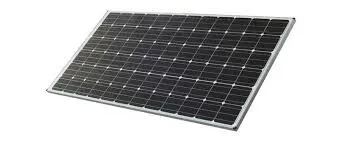Exploring the Benefits and Efficiency of Hybrid Solar Panel Technology for Sustainable Energy
Exploring Hybrid Solar Panels The Future of Renewable Energy
In the quest for sustainable energy solutions, hybrid solar panels have emerged as a promising alternative that combines traditional solar technologies with innovative design. These panels are not only more efficient but also adaptable to a variety of environments, making them a significant advancement in the renewable energy sector. This article delves into what hybrid solar panels are, their advantages, applications, and future potential.
What Are Hybrid Solar Panels?
Hybrid solar panels integrate two or more technologies to optimize the conversion of sunlight into electricity. Typically, they combine photovoltaic (PV) cells and solar thermal components. While PV cells convert sunlight directly into electricity, solar thermal systems harness the sun's heat, providing additional energy output. By merging these technologies, hybrid panels can produce both electricity and heat, enhancing overall efficiency significantly compared to conventional solar panels.
Advantages of Hybrid Solar Panels
One of the most notable advantages of hybrid solar panels is their increased efficiency. Traditional solar panels usually convert about 15-20% of sunlight into electricity. However, hybrid systems can achieve efficiencies of over 30% due to their ability to utilize a broader spectrum of solar energy. This higher efficiency means that hybrid panels can produce more energy in the same amount of space, making them ideal for urban environments where roof space may be limited.
Additionally, hybrid solar panels contribute to reduced energy costs. By generating both electricity and thermal energy, they offer dual benefits that help households and businesses save on energy bills. The heat generated can be used for water heating or space heating, which is especially valuable in colder climates.
Another significant advantage is their versatility. Hybrid solar panels can be adapted for various applications, from residential rooftops to large-scale solar farms. Their ability to work in different weather conditions further enhances their appeal. While traditional solar panels may underperform on cloudy days, the thermal aspect of hybrids can still provide heating or hot water, ensuring that energy production remains more consistent.
Applications of Hybrid Solar Panels
hybrid solar panels

Hybrid solar panels have a wide range of applications. In residential settings, they can be utilized for home energy needs, contributing to heating, cooling, and electricity generation. For commercial buildings, hybrid systems offer scalable solutions, allowing businesses to meet their energy demands efficiently while minimizing operational costs.
In industrial applications, hybrid panels are particularly valuable in processes that require both electricity and heat. For instance, in manufacturing or food processing, the heat can be used directly in production processes, while also generating electricity for operations. This dual function maximizes resource use and reduces environmental impact.
Moreover, hybrid solar panels are gaining traction in off-grid installations. In remote areas where electricity is not readily available, these panels provide a reliable energy solution, combining both heating and electricity generation to power homes and communities.
The Future of Hybrid Solar Panels
As technology continues to advance, the future of hybrid solar panels looks promising. Research and development efforts are focused on improving the materials and designs to enhance efficiency further and reduce costs. Innovations such as bifacial solar panels, which capture sunlight on both sides, and advanced solar thermal technologies are paving the way for even more effective hybrid systems.
Moreover, government policies and incentives aimed at promoting renewable energy adoption are likely to drive the growth of hybrid solar technologies. As more consumers and businesses seek sustainable energy solutions, the demand for hybrid solar panels is expected to increase.
Conclusion
Hybrid solar panels represent a significant step forward in the evolution of solar technology. Their ability to combine electricity generation and thermal energy production positions them as an efficient and versatile energy solution for the future. With advancements in technology and supportive policies, hybrid solar panels are set to play a vital role in the global shift towards renewable energy, offering a sustainable pathway to meet our energy needs while mitigating the impacts of climate change. As we continue to innovate and invest in hybrid solutions, we move closer to a cleaner, more sustainable energy future for all.
-
Understanding the Advantages of Solar String Inverters for Your Energy SystemNewsApr.29,2025
-
Choosing the Right PV Inverter: A Comprehensive GuideNewsApr.29,2025
-
The Future of Solar Power: Exploring Bifacial Solar PanelsNewsApr.29,2025
-
The Complete Guide to Solar Panels: Efficiency, Cost, And InstallationNewsApr.29,2025
-
The Best Options for Efficiency and Cost-EffectivenessNewsApr.29,2025
-
Harnessing the Power of Off-Grid Solar Inverters for Energy IndependenceNewsApr.29,2025







